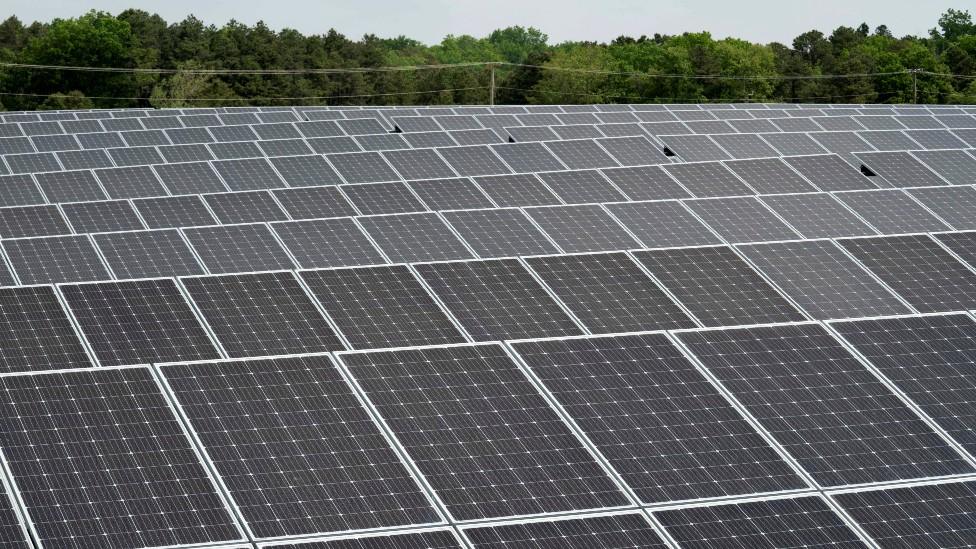Council to ask government to 'spread out' solar farms
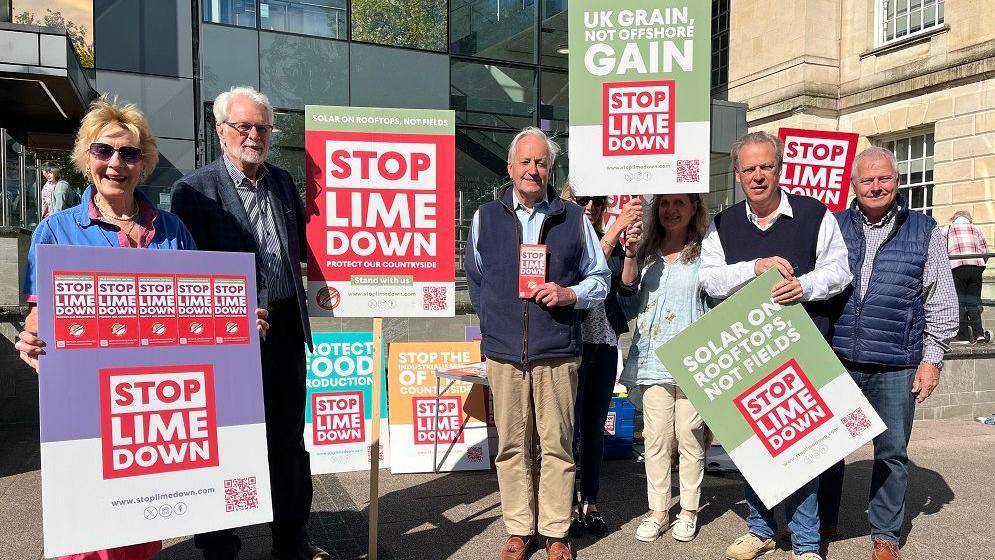
Campaigners against the Lime Down solar farm were outside County Hall for a meeting on Wednesday
- Published
A council has agreed to write to the government asking it to make sure solar farms are spread "more evenly" across the UK.
Many councillors in Wiltshire feel the county has taken more than its fair share, with more than 40 solar farms, and villages such as Whitley, Potterne and Broughton Gifford, feeling "surrounded".
Cabinet member for strategic planning Nick Botterill, who brought the motion to make the call on government, said they are not being "alarmist" with the request.
Last week the government said planning authorities must consider the cumulative impact, external when several proposals come up in the same area.
'Highly damaging assault'
Council members voted on Wednesday to call on the government to ensure that solar farms are “more evenly spread across the UK” and “not concentrated in specific areas effectively industrialising the countryside".
Council leader Richard Clewer emphasised that they are not opposed to solar farms, but agreed they need more detail and a better explanation of what the government means by "cumulative impact".
The debate was held weeks after a public consultation on what would be one of the biggest solar farms in the country ended.
The Lime Down project would see solar panels on 2,000 acres of farmland across six villages in Wiltshire.
Sir Michael Pitt, a former CEO of the Planning Inspectorate, spoke on behalf of the Stop Lime Down group, which supported the motion to write to the government.
He called the Lime Down proposal a "highly damaging assault on the county's landscape and way of life" and added that "future generations would wonder why we haven't taken greater care of the county".
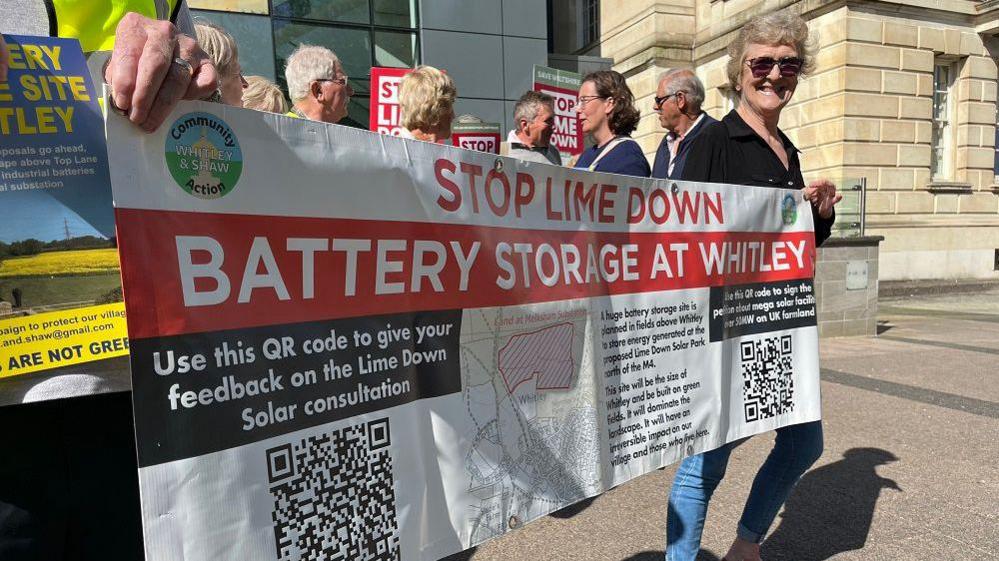
Residents in Whitley are concerned about the large Lime Down proposal
While most of those attending the meeting said they supported solar power overall, they said the panels should be placed on brownfield sites or rooftops.
Peter Richardson, a parish councillor for Whitley near Melksham, said that if Lime Down were to go ahead, the village would "be completely surrounded by solar farms and associated infrastructure".
The battery storage for the proposals would be in the village, with residents also concerned about the possibility of battery-related fires.
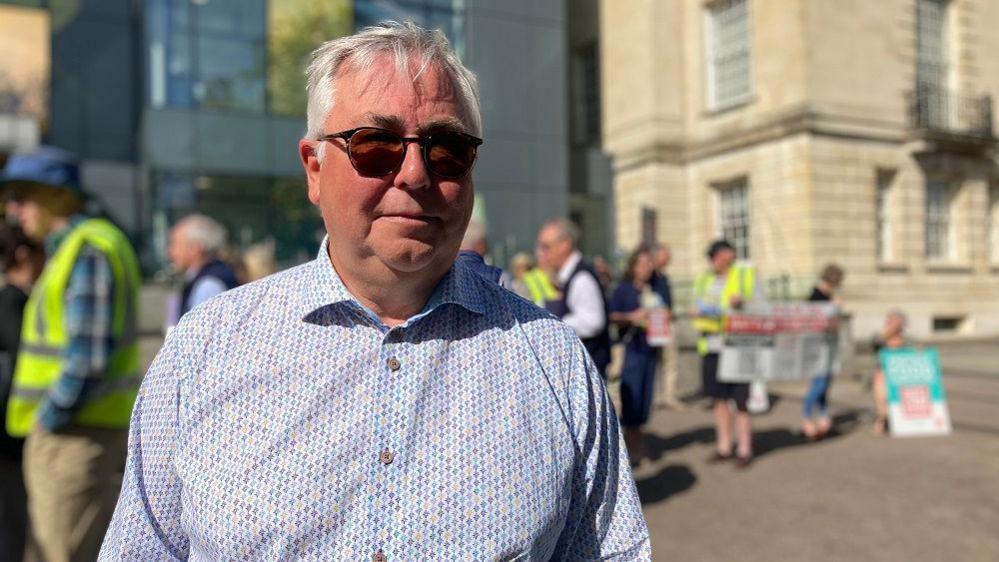
Peter Richardson is a parish councillor for Whitley and is concerned about more battery storage for solar in their area
Meanwhile, Chippenham town councillor and part of the Wiltshire Climate Alliance, Matthew Short, said that while he agreed there should be more solar on rooftops, this would not "match the scale of the problem".
He added that solar could actually benefit the soil and wildlife on poorer quality farmland and that supporting solar projects is "critical for energy security".
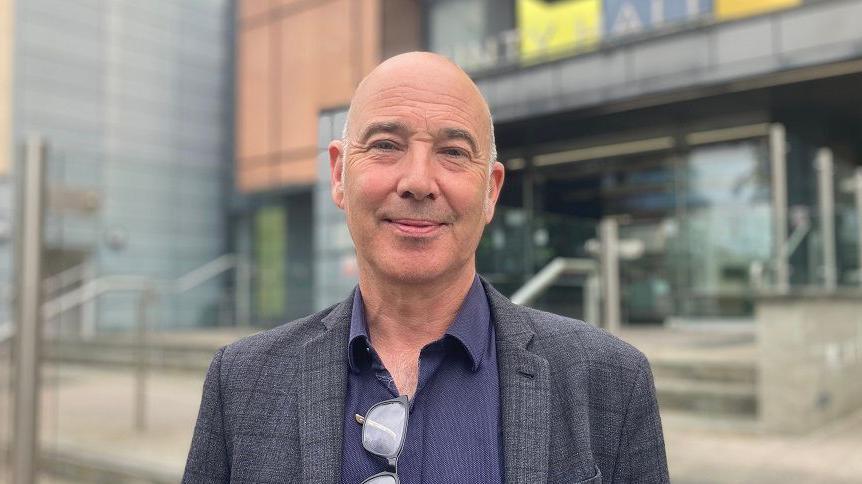
Chippenham town councillor and Wiltshire Climate Alliance member Matthew Short said using rooftops would not be enough
The developer behind the Lime Down scheme, Island Green Power, told the BBC that it "recognises the importance of carefully balancing renewable energy initiatives with the need to preserve the aesthetic and environmental integrity of the areas where we operate".
It added that it wants to "minimise negative impacts and maximise positive impacts on the local environment and local community as far as is possible".
Energy Security Secretary Claire Coutinho told Parliament on 15 May that with growing geopolitical tension, the best agricultural land must be protected for food security.
She also reinforced the weight of planning policy and the need for solar to be delivered in a sensible way – ensuring developers and planning authorities consider the cumulative impact solar projects can have on local communities.
Follow BBC Wiltshire on Facebook, external, X, external and Instagram, external. Send your story ideas to us on email or via WhatsApp on 0800 313 4630.
- Published3 April 2024
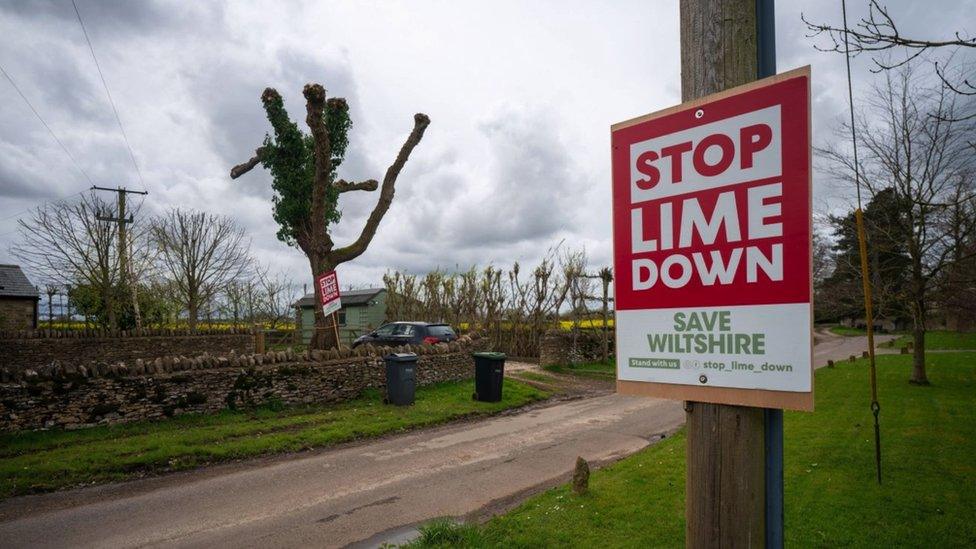
- Published5 April 2024
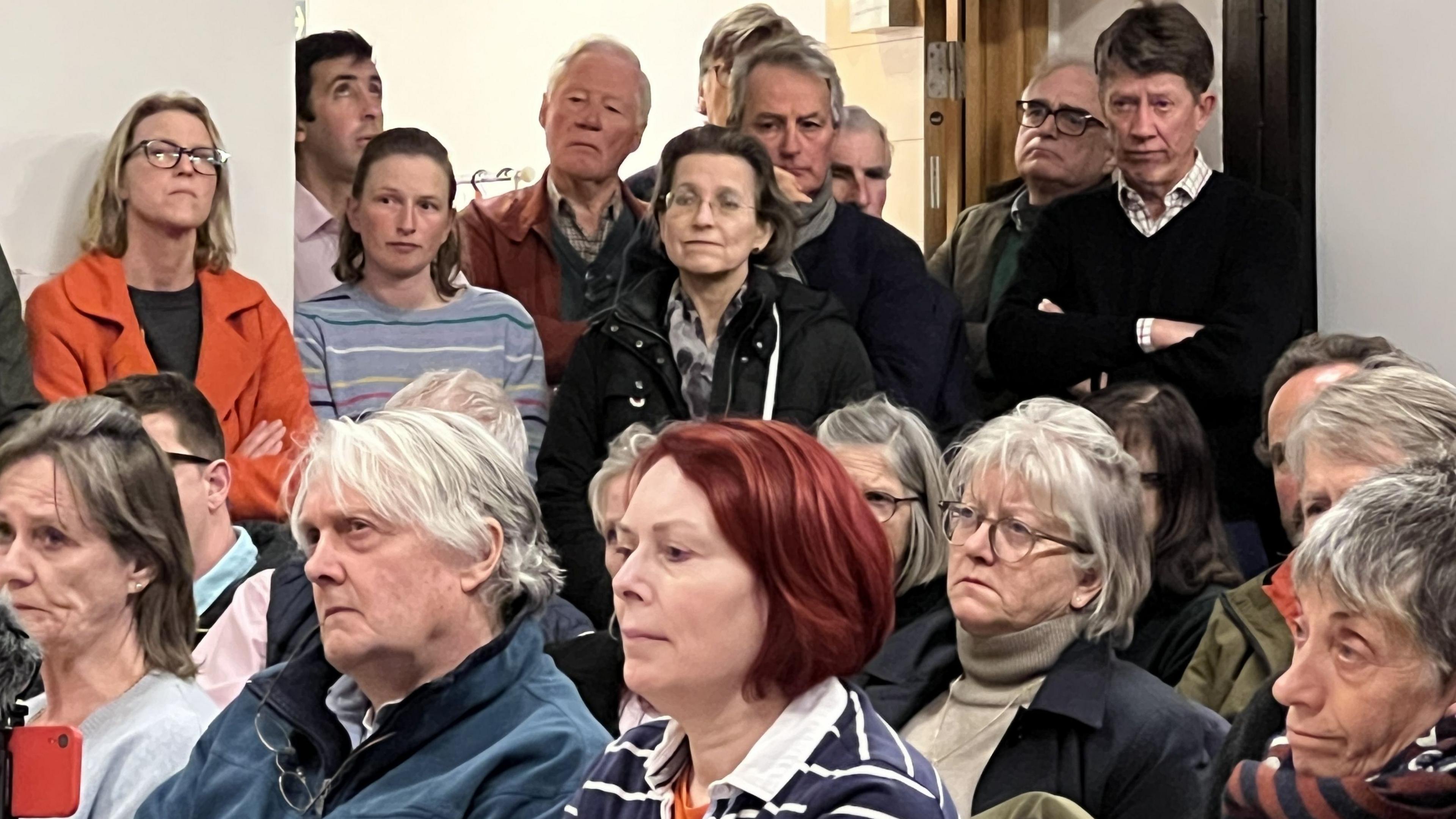
- Published11 November 2023
